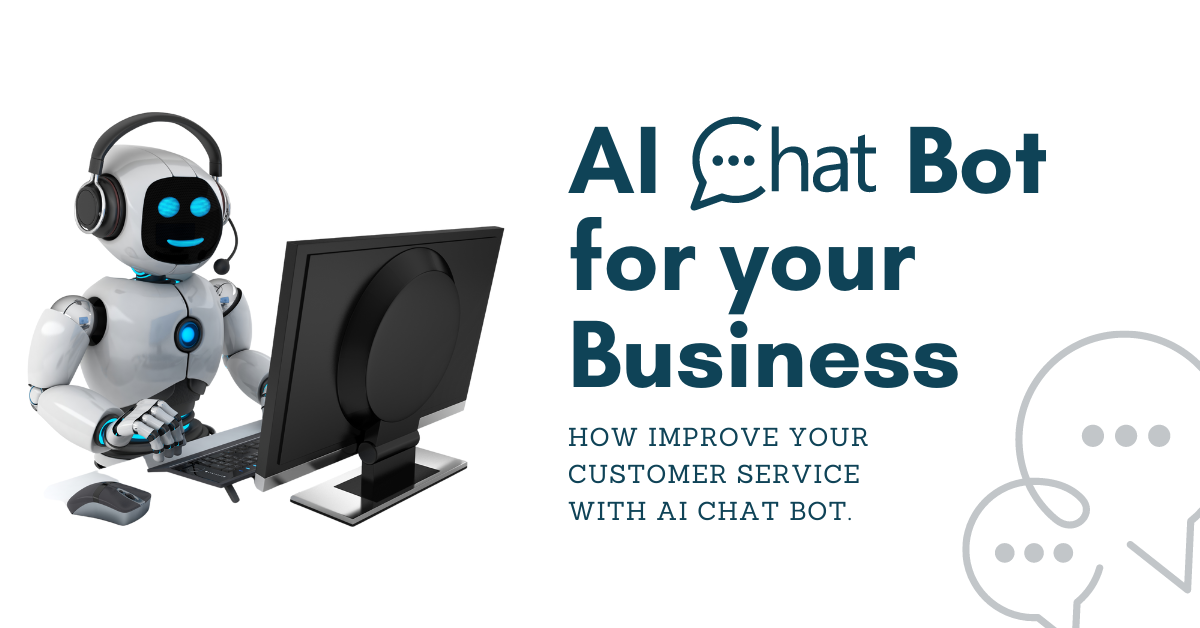In the digital age, customer service is no longer just about human interactions. The integration of artificial intelligence (AI) into customer service operations has brought about a revolutionary shift, redefining how businesses engage with their customers. Among the most significant advancements in this field are chatbots and virtual assistants, which have rapidly gained popularity. This blog explores how AI in customer service is transforming the customer experience and why chatbots and virtual assistants are leading the charge.
The Role of AI in Customer Service
AI in customer service has become a game-changer for businesses looking to improve efficiency and enhance customer satisfaction. Traditional customer service models relied heavily on human agents, leading to challenges such as long wait times, human error, and inconsistent service quality. With AI, these issues are mitigated, offering a more streamlined and reliable service.
AI-powered tools like chatbots and virtual assistants can handle a large volume of inquiries simultaneously, providing instant responses and support. This efficiency is particularly valuable for businesses that operate around the clock, as AI can provide 24/7 customer service without the need for human intervention. Moreover, AI-driven systems learn and improve over time, becoming more adept at understanding and resolving customer issues.
The Rise of Chatbots in Customer Service
Chatbots are one of the most visible applications of AI in customer service. These AI-powered programs are designed to simulate human conversation and can be integrated into websites, mobile apps, and social media platforms. The primary function of chatbots is to engage with customers, answer questions, and provide support, all in real time.
One of the key advantages of chatbots is their ability to provide immediate assistance. In today’s fast-paced world, customers expect quick responses, and chatbots deliver just that. Whether it’s answering FAQs, guiding users through a process, or even helping with basic troubleshooting, chatbots can handle a wide range of tasks. This instant service not only enhances the customer experience but also frees up human agents to focus on more complex issues.
Moreover, chatbots are highly scalable. Whether a business is dealing with a sudden influx of inquiries or managing regular customer interactions, chatbots can handle multiple conversations simultaneously without compromising service quality. This scalability is particularly beneficial during peak times, such as holiday seasons or major sales events, when customer inquiries tend to spike.
Virtual Assistants: A Step Beyond Chatbots
While chatbots are excellent for handling straightforward tasks, virtual assistants take AI in customer service to the next level. Virtual assistants, such as Amazon’s Alexa, Apple’s Siri, and Google Assistant, are more advanced AI systems that can perform a broader range of functions. These assistants are designed to understand context, interpret complex requests, and even anticipate customer needs.
In a customer service setting, virtual assistants can provide personalized support. For example, a virtual assistant can access a customer’s purchase history and offer tailored product recommendations, or it can schedule appointments and send reminders based on the user’s preferences. This level of personalization creates a more engaging and satisfying customer experience, which can lead to increased customer loyalty and higher conversion rates.
Additionally, virtual assistants are not limited to text-based interactions. Many virtual assistants are equipped with voice recognition capabilities, allowing for more natural and convenient communication. This voice interaction is especially useful for hands-free customer service, making it easier for customers to get the help they need without having to type or navigate through menus.
The Benefits of AI in Customer Service
The implementation of AI in customer service offers numerous benefits for both businesses and customers. For businesses, AI-driven customer service solutions like chatbots and virtual assistants can significantly reduce operational costs. By automating routine tasks and inquiries, companies can lower their reliance on human agents, thereby cutting labor costs and improving efficiency.
For customers, the primary benefit is convenience. AI provides fast, accurate, and consistent service, ensuring that customers can get the support they need whenever they need it. This reliability is crucial in today’s competitive market, where customer satisfaction can make or break a brand’s reputation.
Another notable benefit of AI in customer service is data collection and analysis. AI systems can track customer interactions, gather insights, and identify trends. This data is invaluable for businesses looking to improve their services, as it provides a deeper understanding of customer needs and preferences.
Challenges and the Future of AI in Customer Service
While AI in customer service offers many advantages, it is not without challenges. One of the primary concerns is the potential loss of the human touch. While AI can handle many tasks efficiently, some customers still prefer interacting with a human agent, especially for more complex or sensitive issues. To address this, businesses are adopting a hybrid approach, where AI handles basic inquiries while human agents take over when needed.
Looking ahead, the future of AI in customer service is bright. As AI technology continues to evolve, we can expect even more sophisticated chatbots and virtual assistants that are capable of providing an even higher level of service. From natural language processing to predictive analytics, the next generation of AI tools will offer unprecedented levels of personalization and efficiency.
Conclusion
The rise of chatbots and virtual assistants marks a new era of AI in customer service. These AI-driven tools are not just enhancing customer service; they are revolutionizing it. By providing fast, reliable, and personalized support, chatbots and virtual assistants are setting new standards for customer experience. As businesses continue to embrace AI, the future of customer service looks more promising than ever.
also Latest Content about Technology on Technology Guider.


